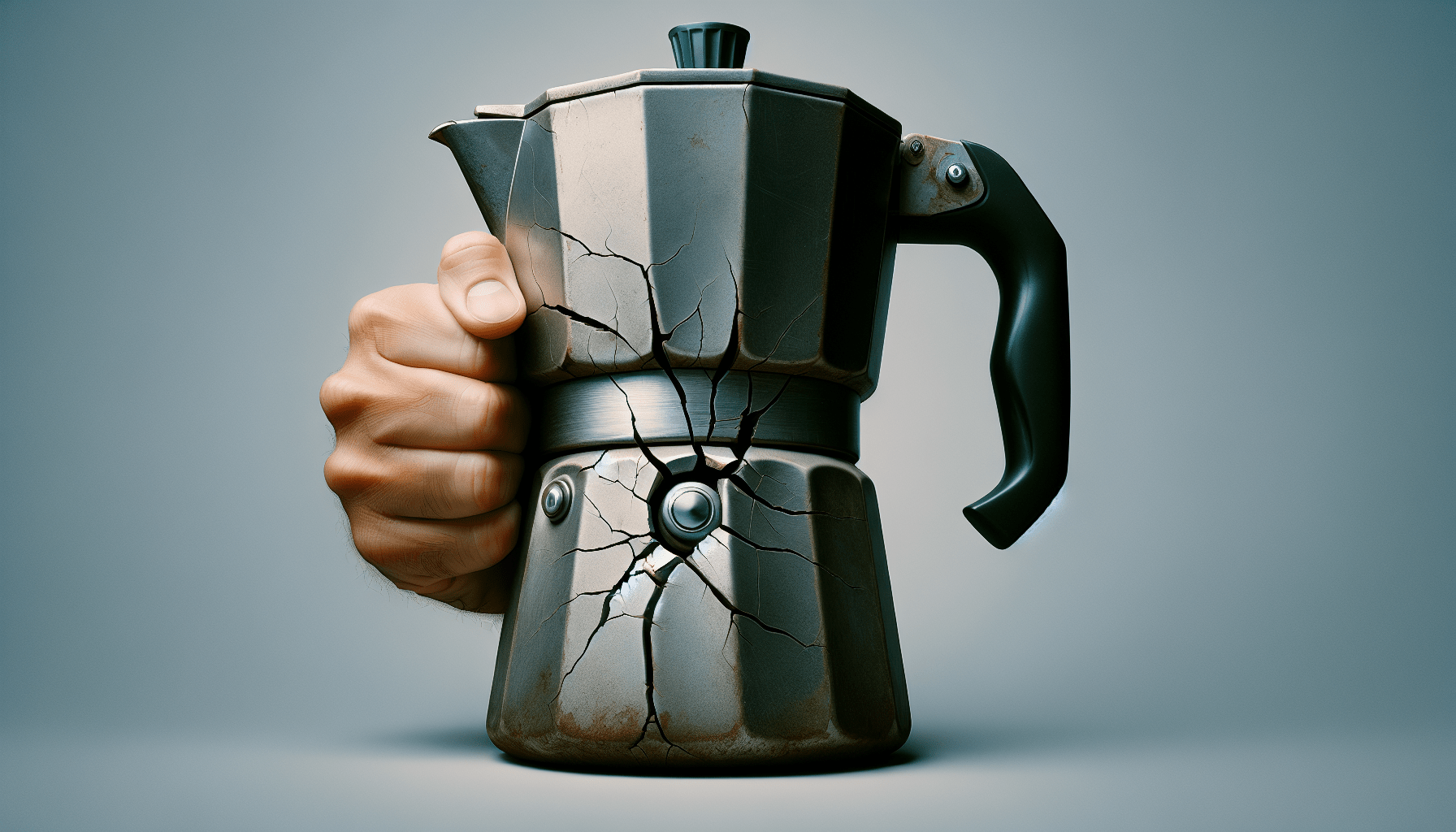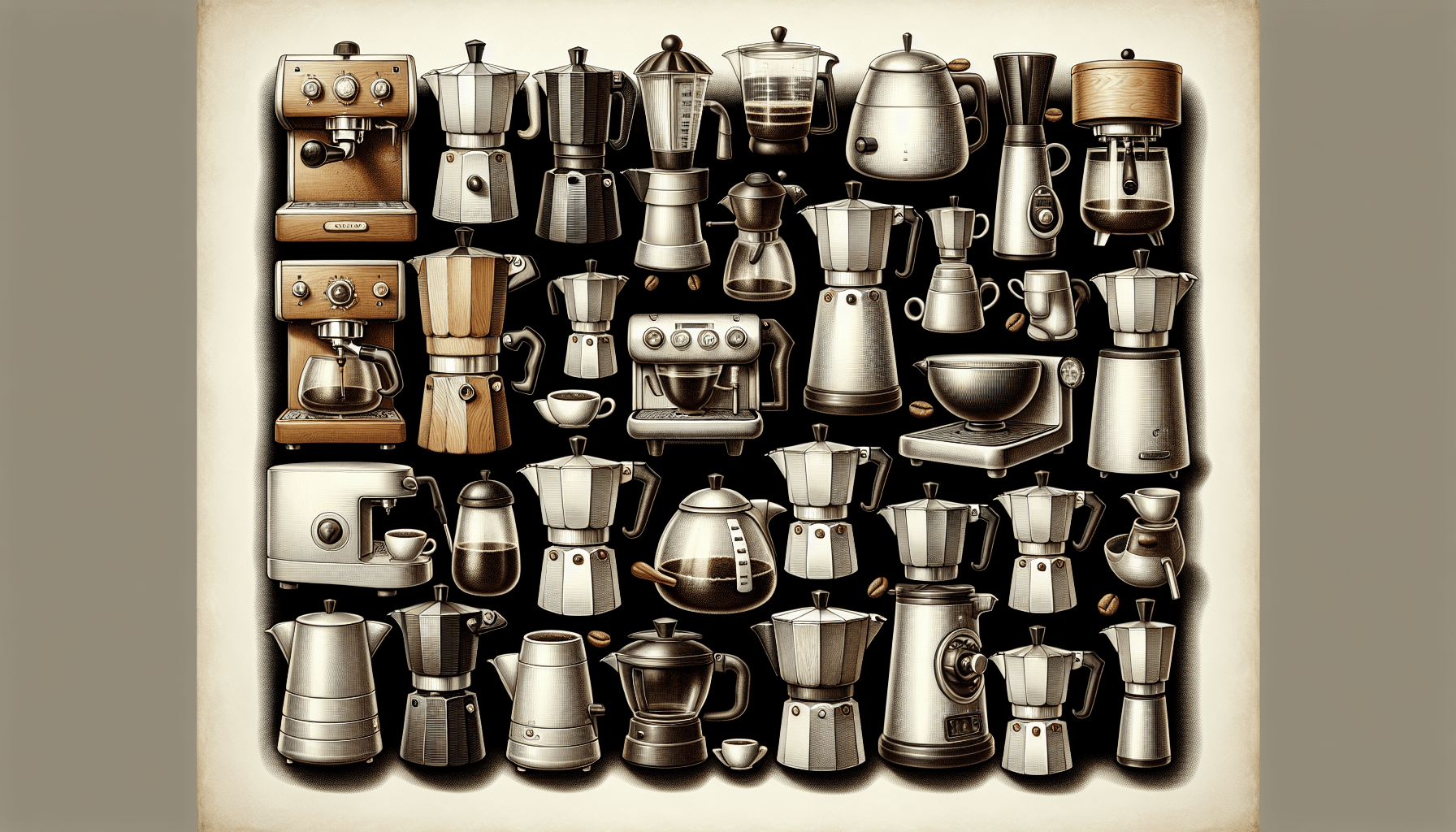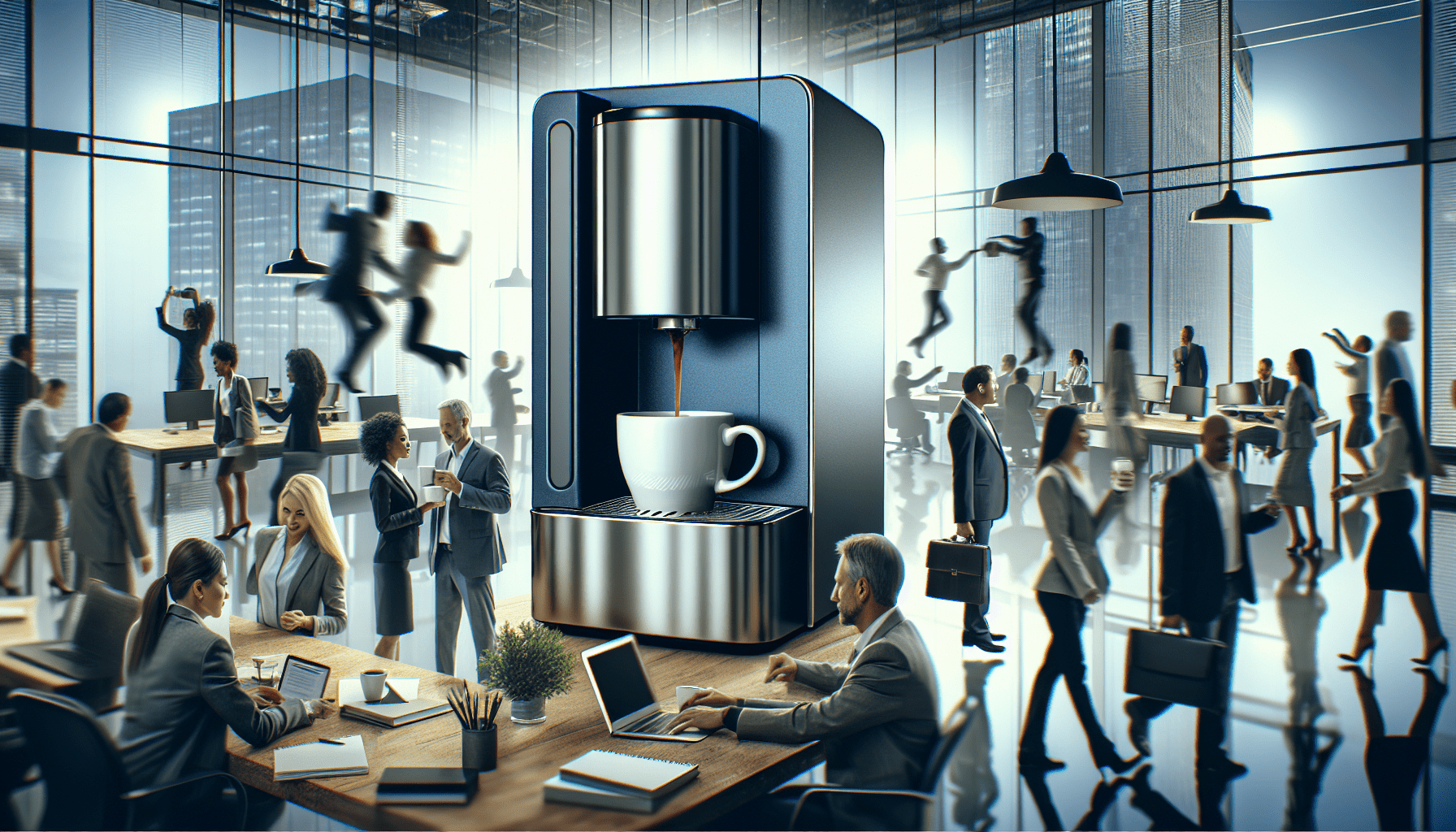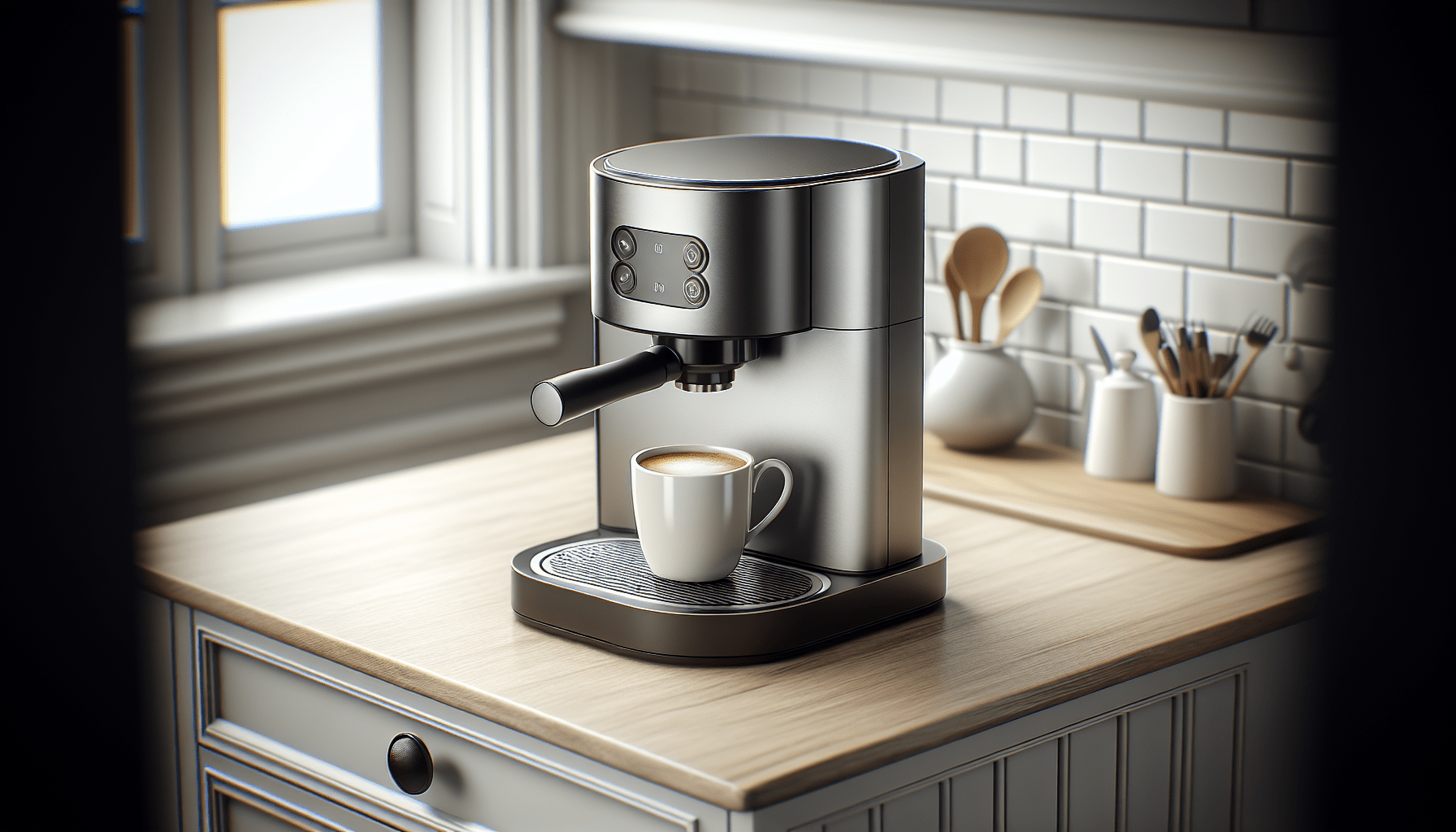If your trusty coffee maker has been your morning companion for years, it’s natural to wonder when it’s time to bid farewell and find a new one. After all, a perfectly brewed cup of coffee is a delightful way to start the day. But how do you know when it’s time to take the plunge and replace your coffee maker? In this article, we will explore the telltale signs that indicate it might be time to invest in a shiny new machine that will continue to make your mornings deliciously worthwhile. So grab your favorite mug, settle in, and let’s find out when it’s time to give your coffee maker a well-deserved retirement.
1. Coffee Quality
Uneven extraction
The quality of your morning coffee starts with the extraction process. If you notice that your coffee tastes inconsistent or lacks the depth of flavor it once had, it may be a sign that your coffee maker is not extracting the coffee grounds evenly. This can result in a weaker and less flavorful cup of coffee.
Bitter or burnt taste
Another indicator that it may be time to replace your coffee maker is if you consistently experience a bitter or burnt taste in your coffee. This could be a result of the coffee maker overheating or the components becoming worn out over time. A fresh cup of coffee should be enjoyable and free from any unpleasant or off-putting flavors.
Weak or watery coffee
On the other end of the spectrum, if your coffee tastes weak or watery, it could be a sign that your coffee maker is not brewing the coffee properly. This may be due to clogging or malfunctioning parts that are not allowing the water to fully extract the coffee’s flavors and strength. After all, we all want a bold and satisfying cup of coffee to start our day off right.
2. Physical Condition
Visible wear and tear
Take a moment to inspect the physical condition of your coffee maker. Are there noticeable signs of wear and tear? Scratches, dents, or cracked parts can not only be unsightly but may indicate that your coffee maker is no longer functioning optimally. Over time, these physical flaws can affect performance and potentially lead to more significant issues down the line.
Leaks or drips
If you find that your coffee maker is leaking or dripping during the brewing process, it may be an indication of a faulty seal or internal damage. Persistent leaks can result in a mess on your countertop and may even pose a safety hazard. It’s important to address this issue promptly to avoid any potential accidents or damage to your kitchen.
Faulty buttons or controls
Pay attention to the buttons and controls on your coffee maker. Are they responding as they should, or do you find yourself pressing harder or multiple times to get a response? If your controls are becoming unresponsive or sticking, it may be a sign that your coffee maker’s internal mechanisms are deteriorating and that it’s time for an upgrade.
3. Brewing Time
Significantly slower brewing
If you’ve noticed that your coffee maker takes noticeably longer to brew a pot of coffee than it used to, it may be a sign of declining performance. A slower brewing time can be frustrating, especially when you’re in need of that caffeine pick-me-up in the morning. A reliable coffee maker should consistently deliver your coffee in a timely manner.
Inconsistent brewing time
Consistency is key when it comes to brewing a perfect cup of coffee. If you find that your coffee maker’s brewing time fluctuates significantly from one brewing cycle to another, it may be an indication of internal issues. Inconsistent brewing time can result in over-extracted or under-extracted coffee, leading to an unpleasant coffee experience.
4. Maintenance and Cleanliness
Difficulty in cleaning
Regular maintenance and cleaning are essential for the longevity and performance of your coffee maker. If you find that your coffee maker has become increasingly difficult to clean, with hard-to-reach areas and components that are challenging to disassemble, it may be a sign that it’s time for an upgrade. A coffee maker that is easy to clean will make your brewing routine much more enjoyable and efficient.
Buildup of mineral deposits
Most coffee makers require regular descaling to remove mineral deposits that can accumulate over time. If you find that no matter how often you descale your coffee maker, the buildup returns quickly or remains stubbornly persistent, it may be an indication that your coffee maker’s internal components are becoming worn out. This can affect the taste of your coffee and the overall performance of the machine.
Mold or mildew growth
Mold or mildew growth is a serious issue that should not be ignored. If you discover any signs of mold or mildew inside your coffee maker, it is crucial to address the problem immediately. Mold can pose health risks and affect the taste of your coffee. If your current coffee maker is prone to mold growth, it may be time to consider a replacement that is better designed to resist the conditions that promote mold and mildew.
5. Energy Efficiency
Increased electricity consumption
As coffee makers age, their energy efficiency may decline. If you notice a significant increase in your electricity bill and have ruled out other possible causes, it could be due to your coffee maker consuming more energy than necessary. Upgrading to a newer, more energy-efficient model can help save on energy costs in the long run while still brewing your favorite cups of coffee.
Reduced heating efficiency
A coffee maker’s heating element is a vital component for brewing a good cup of coffee. If you find that your coffee takes longer to heat up or doesn’t reach the optimal brewing temperature consistently, it may be a sign of reduced heating efficiency in your current coffee maker. A coffee maker with subpar heating capabilities can affect the extraction process and result in a less satisfying cup of coffee.
6. Repairs and Malfunctions
Frequent breakdowns
Have you found yourself needing to repair your coffee maker more often than not? Frequent breakdowns can be a hassle and can disrupt your daily coffee routine. If your coffee maker consistently requires repairs or shows signs of frequent malfunctions, it may be more cost-effective and convenient to replace it with a new, reliable coffee maker.
Difficulties in finding replacement parts
The availability of replacement parts for an older coffee maker can be a significant factor in determining whether it’s time for a replacement. If you’re experiencing difficulties in finding compatible replacement parts or they are becoming increasingly expensive, it may be a sign that it’s time to retire your coffee maker and invest in a new one that offers better aftermarket support.
7. Lifespan
Longevity of typical coffee makers
Coffee makers, like any other appliance, have a lifespan. While individual factors such as usage and maintenance can vary, most coffee makers are designed to last between 5 to 10 years. If your coffee maker has surpassed its expected lifespan and is exhibiting some of the other signs mentioned in this article, it may be a clear indication that it’s time to say goodbye.
Age of the current coffee maker
Consider the age of your current coffee maker. If you’ve had it for a significant amount of time and are experiencing several of the issues mentioned, it may be a good idea to start exploring newer models. The advancements in coffee maker technology over the years offer improved performance, convenience, and functionality that may enhance your overall coffee brewing experience.
8. Upgraded Features
Newer models with advanced features
One of the exciting aspects of upgrading your coffee maker is the opportunity to embrace new and advanced features. From programmable timers and brew strength control to built-in grinders and sophisticated brewing systems, newer models offer a wide range of features that can elevate your coffee brewing ritual. If you’re looking for additional convenience or customization options, it may be time to consider stepping up to a more modern coffee maker.
Desire for additional functionalities
Maybe you’re yearning for a coffee maker that can prepare different coffee styles or accommodate a larger capacity. Assessing your changing needs and desires for additional functionalities can guide you in determining whether it’s time to invest in a new coffee maker. If your current coffee maker no longer meets your preferences or lifestyle, it may be the perfect opportunity to explore the vast array of options available in the market.
9. Lifestyle Changes
Increased coffee consumption
If you find yourself gradually increasing your coffee intake or have more coffee drinkers in your household, it may be a sign that your current coffee maker is no longer meeting the demands. An upgrade to a coffee maker with a larger capacity or faster brewing time can ensure that you have enough coffee to go around without compromising on taste or quality.
Need for a larger capacity
Has your family grown in size or have you started hosting more coffee-loving guests? If so, you may find that your current coffee maker’s capacity is no longer sufficient. A larger-capacity coffee maker can cater to your changing needs and provide the convenience of brewing multiple cups at once. This can be a game-changer when it comes to accommodating larger gatherings or simply ensuring that everyone gets their caffeine fix in one go.
10. Cost vs. Benefit Analysis
Comparing the cost of replacement to benefits
When considering whether to replace your coffee maker, it’s essential to weigh the cost of a new machine against the benefits it would bring. Calculate the expenses associated with repairs, maintenance, and potential energy consumption of your current coffee maker over time. Compare this to the advantages of a new coffee maker, such as improved performance, enhanced features, and potential energy savings. This cost vs. benefit analysis can help you make an informed decision.
Considering the value of a new coffee maker
In addition to the cost vs. benefit analysis, it’s important to consider the overall value a new coffee maker can bring to your daily life. A coffee maker is an integral part of your morning routine, and investing in a new model that can provide a better coffee experience, greater convenience, and improved longevity can be well worth it. Factor in the joy and satisfaction of starting your day with a fresh and delicious cup of coffee, and you may find that a new coffee maker is an investment that brings significant value to your life.
Conclusion
Knowing when it’s time to replace your coffee maker involves assessing various factors that affect its functionality, performance, and your overall coffee brewing experience. From the quality of coffee it produces to its physical condition, brewing time, maintenance, and energy efficiency, each aspect contributes to the decision of whether to invest in a new coffee maker. Additionally, lifestyle changes, desire for upgraded features, and cost vs. benefit analysis can help guide your decision-making process. By recognizing the signs and evaluating these factors, you can determine when it’s time to bid farewell to your old faithful and welcome a new coffee maker into your daily routine. Cheers to brewing better coffee!




